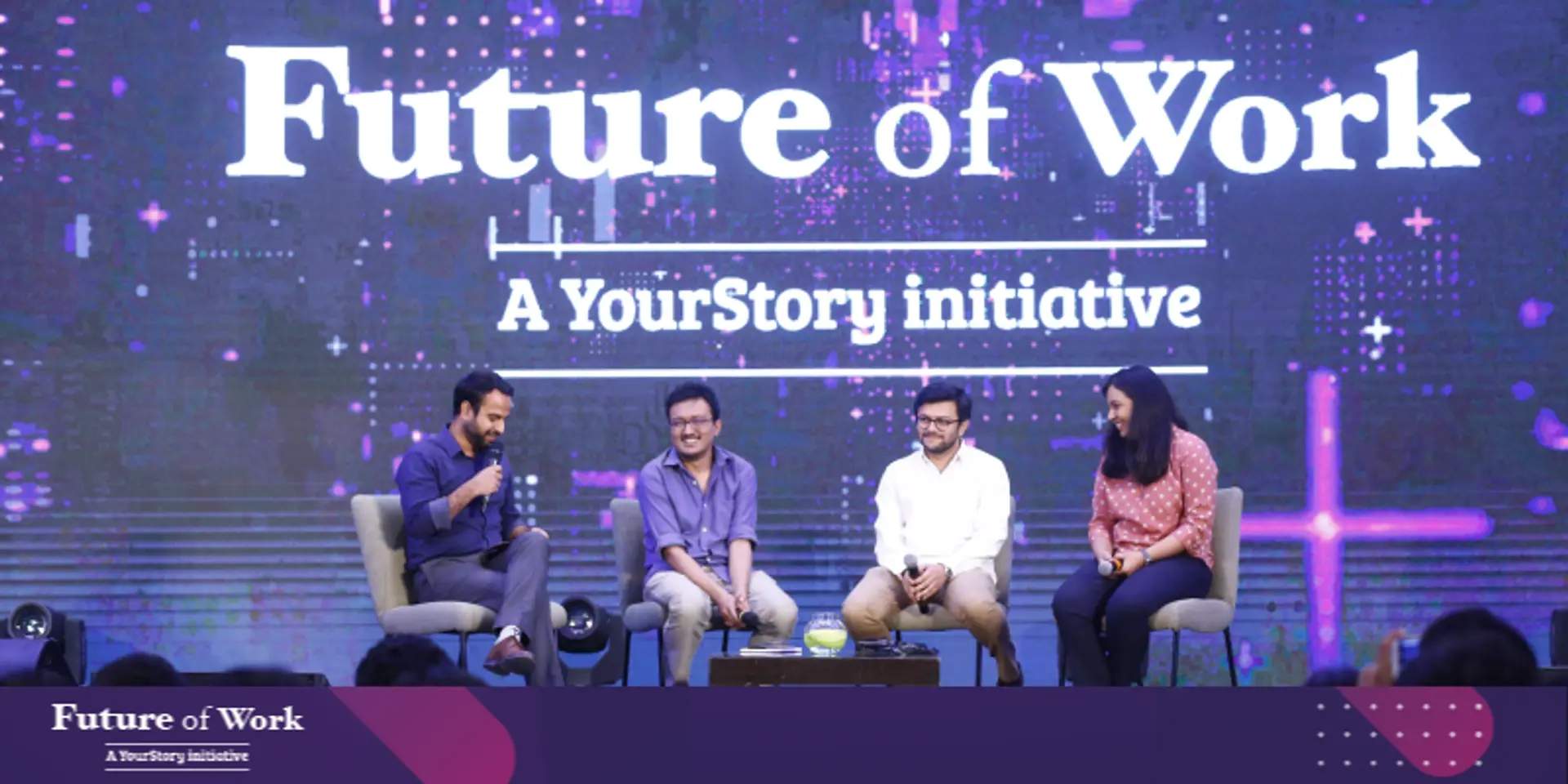Future of Work 2020: ‘Startups should focus on team efficiency and not social media feedback while scaling’
At YourStory’s Future of Work 2020 conference, Anirban Das of Dunzo, Viral Mehta of Pocket Aces, and Shivangi Srivastava of KhataBook spoke about the critical factors behind the scaling of a startup.
Scaling is an important and a critical phase for every startup that is looking to grow. At the third edition of YourStory’s Future of Work event, India’s largest product-tech-design conference, a panel of experts from the startup world discussed scaling strategies.
Anirban Das, Head of Product, ; Viral Mehta, VP Engineering, ; and Shivangi Srivastava, VP Product, delved into the factors needed to scale from the lessons they learnt in their journey as product managers.
For Shivangi, scaling is all about the mindset. “We will have to slow down to grow again and make sure things are okay. If you are scaling, scale it right,” she said.
While scaling is important, Viral emphasised the need to develop great user empathy to understand what the user needs at a particular point of time. “Numbers are also important at the same time. It all however starts with whether you adding something to the user’s life.”

(L-R) Alok Soni of YourStory (moderator), Anirban Das of Dunzo, Viral Mehta of Pocket Aces, and Shivangi Srivastava of KhataBook
Anirban agreed with his fellow panelists but added that one needs to look at growth through other lenses as well.
The trio advocated turning the growth plan into an equation where you can break down the entire system into small parts with inputs. This makes it easier to process the complexities.
“Once you identify these inputs, you need to prioritise which of these are sensitive towards bearing outputs. You need to identify the constraints as well. Not all the inputs mould the same way,” said Anirban.
Shivangi added that in order to grow, it is also important to understand the channels to get to the users, where your product is in terms of use case, and how to get to it. One can grow if there is an actual need.
This is where laying down the thought processes is important. According to Shivangi, the product should be thought through well enough for the team to be interested in and to work on.
However, Viral cautioned product managers regarding trade-offs. For example, when you have to deliver something very fast, you end up taking shortcuts. While any single shortcut by itself is not a problem, accumulating a bunch over a period of time, depending on how long your deliverable period may be, will lead to issues that would require a lot of investment to undo.
Anirban agreed, providing an example from Dunzo. “When it comes to trade-offs, Dunzo needed to make various hard calls. One of the biggest pivots was to catalogue thousands of merchants, changing the interface of the app, and this wasn’t liked by many users. But this was a call we needed to take. If you look back now, we scaled 25x since then.”
And scaling hinges on data. Shivangi noted that one needs to have the right mindset to approach data with a blind slate. According to Viral, getting deeper and deeper to the ‘why’ part at every point is necessary in terms of data.
While a growing company looking to scale needs to be open to taking regular feedback, Viral cautioned that that does not mean comments seen on social media.
The panel asked the audience to decide the growth chart of their startups by the energy and the efficiency of the team and not by social media comments.
(Edited by Evelyn Ratnakumar)
A big shout out to our Future of Work 2020 Sponsors: Alibaba Cloud, Larksuite, Vodafone Idea Limited, Gojek, Adobe, , , , , , , Maharashtra State Innovation Society, and GetToWork; and our Knowledge Partner: Ascend Harvard Business Review.





